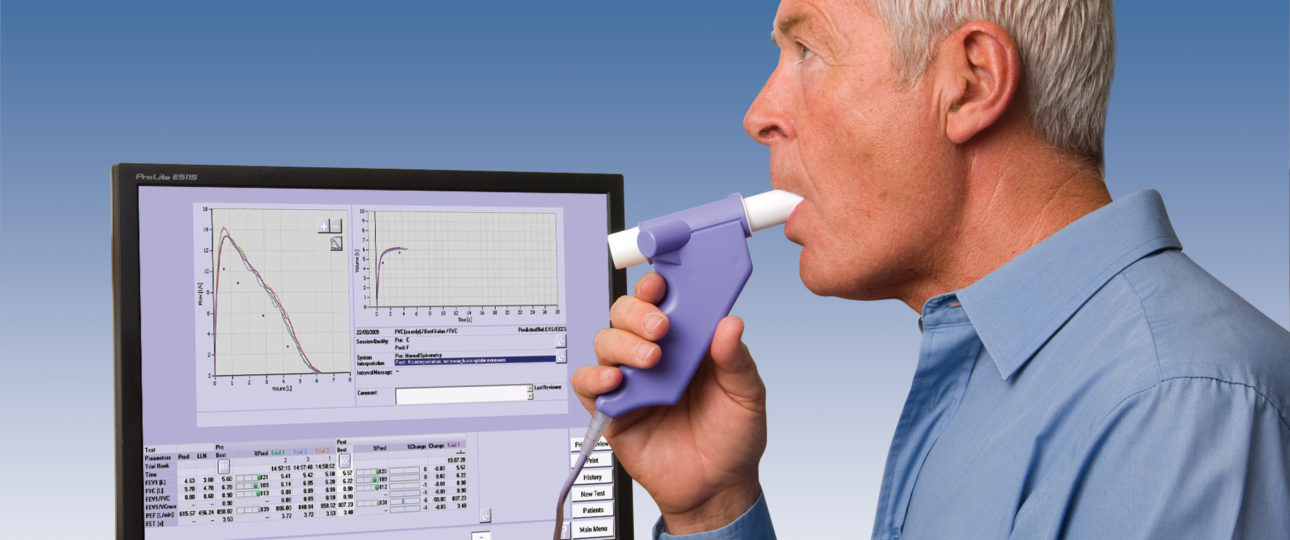Casebrook Surgery is one the few approved providers in Canterbury that can offer a funded Spirometry Test.
To qualify for a funded assesment you must meet one of the following eligibility criteria:
- Assessment of asthma severity in adults
- Chronic cough in adults
- Diagnosis of COPD
- Unexplained dyspnoea
Spirometry (meaning the measuring of breath) is the most common of the pulmonary function tests (PFTs). It measures lung function, specifically the amount (volume) and/or speed (flow) of air that can be inhaled and exhaled. Spirometry is helpful in assessing breathing patterns that identify conditions such as asthma, pulmonary fibrosis, cystic fibrosis, and COPD. It is also helpful as part of a system of health surveillance, in which breathing patterns are measured over time.
Spirometry generates pneumotachographs, which are charts that plot the volume and flow of air coming in and out of the lungs from one inhalation and one exhalation.
You will be asked to do the following to try to ensure the test is done accurately:
- Breathe in as deeply as you can
- Seal your lips around the mouthpiece
- Blow out as hard and fast as you can, for as long as you can, and keep going as long as possible
- Let the Technician know if you feel any distress during the procedure.
Your test results will be reported on by a specially trained doctor and your regular doctor will receive the report and take any action necessary.
Spirometry is indicated for the following reasons:
- to diagnose or manage asthma
- to detect respiratory disease in patients presenting with symptoms of breathlessness, and to distinguish respiratory from cardiac disease as the cause
- to measure bronchial responsiveness in patients suspected of having asthma
- to diagnose and differentiate between obstructive lung disease and restrictive lung disease
- to follow the natural history of disease in respiratory conditions
- to assess of impairment from occupational asthma
- to identify those at risk from pulmonary barotrauma while scuba diving
- to conduct pre-operative risk assessment before anaesthesia or cardiothoracic surgery
- to measure response to treatment of conditions which spirometry detects
- to diagnose the vocal cord dysfunction.


